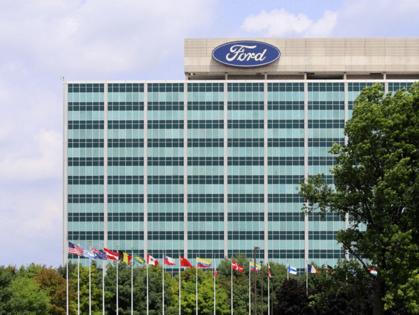Ford vice chair emphasizes preserving capital, industry collaboration
Published in Automotive News
Ford Motor Co.'s vice chair on Wednesday suggested one of the reasons the Dearborn automaker isn't repurchasing its stock is to preserve capital for technology development that he said will require industry collaboration.
Tariffs, a bumpier-than-expected adoption of electric vehicles and Chinese competition are all putting pressure on U.S. automakers' finances, John Lawler said. Still, competitors like crosstown rival General Motors Co. have launched buybacks that have raised the Detroit automaker's stock valuation, with the latest $6 billion program being announced in February.
Ford hasn't announced a similar initiative. Investing in various powertrains, innovation and connected and autonomous vehicles that could help reduce the pains of automotive cyclicality can't all be done competitively with the industry as fractured as it is today, Lawler said.
"We talked about ... the tectonic shifts in the industry, the fact that the capital is going to be required for all of these developments," he said at the Bank of America Securities Auto Summit. "No OEM can do all of that on their own, and every OEM can't develop that themselves."
He added: "Capital is going to be a tool that we have, because the strength of our balance sheet to be able to do these things and continue to invest in the business, so that in 15 years and 10 years, we are a global player that is going to be a force to be reckoned with. Because remember: We have an advantage. We have the ability to long-term, given our ownership structure in the (Ford) family, and they think about that, and that's a gift that we have."
Ford shares were trading around $9.52 late Wednesday morning, down 21% from a year ago. GM shares were at $44.48, up 4.3% from a year earlier.
But stocks across the auto industry have been taking a beating in recent weeks with fluctuating decisions by President Donald Trump on trade policy and tariffs. Earlier this month, his administration imposed a 25% tariff on vehicles imported into the United States.
Lawler emphasized Ford has a strong balance sheet, cash on hand and liquidity to weather the storm, and the Blue Oval particularly is advantaged, since it produces more vehicles in the United States than any mainstream rival, including 80% of the vehicles it sells here.
"We're positioned really well as a company to manage through whatever's coming at us," he said.
Even beyond tariffs, there are other challenges Ford faces. Declining revenues in China, which is being dominated by domestic players there, has forced the company to consider how it will replace those funds, even though it remains committed to being a global player, Lawler said.
Meanwhile, in the United States where Ford makes the majority of its profits, the company eventually foresees no longer selling gas- and diesel-fueled trucks and SUVs that have driven its earnings. That timeline, however, is long — likely more than a decade, Lawler said, especially as Trump directs the U.S. Environmental Protection Agency to reconsider the aggressive greenhouse gas tailpipe emission regulations imposed by former President Joe Biden's administration.
"We have to think about joint ventures," Lawler said. "We have to think about partnerships. Maybe there'll be consolidation, but if something doesn't change, all of us can't do all of this on our own, especially with what has been our largest profit pools and cash generators in this industry over the last 10 to 12 years drying up."
Ford is investing in hybrid, plug-in hybrid, extended-range electric vehicle and all-electric propulsion systems. But Lawler said a "breakthrough" in technology will be needed especially to support long-range and commercial vehicles transitioning from traditional powertrains. Ford scrapped plans for a three-row electric SUV last year, saying it was too expensive to be profitable within in a year, and is focusing on smaller platforms that require fewer, cheaper batteries that make up most of the cost of an EV.
"This industry, for the 35 years that I've been involved in, it has really runs as operators, not investors," Lawler said. "We have to be investors, so whatever we invest in has to give us a return on that capital above our cost of capital."
©2025 www.detroitnews.com. Visit at detroitnews.com. Distributed by Tribune Content Agency, LLC.








Comments